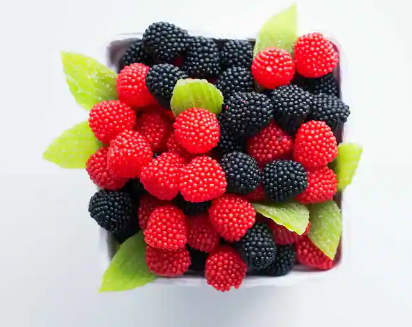National Nutrition Week 2023: 7 Nutrient-Dense Foods To Add To Your Daily Diet
National Nutrition Week is an annual event celebrated across the world to raise awareness about the importance of proper nutrition and its impact on our health. In 2023, as we observe National Nutrition Week, it's essential to focus on the significance of incorporating nutrient-dense foods into our daily diet. Nutrient-dense foods provide us with a wealth of essential vitamins, minerals, and other beneficial compounds that are vital for maintaining good health. In this review article, we will explore seven nutrient-dense foods that you should consider adding to your daily diet to promote overall well-being.
nutrition day, national
National Nutrition Week is an annual event celebrated across the world to raise awareness about the importance of proper nutrition and its impact on our health. In 2023, as we observe National Nutrition Week, it's essential to focus on the significance of incorporating nutrient-dense foods into our daily diet. Nutrient-dense foods provide us with a wealth of essential vitamins, minerals, and other beneficial compounds that are vital for maintaining good health. In this review article, we will explore seven nutrient-dense foods that you should consider adding to your daily diet to promote overall well-being.
- Leafy Greens
Leafy greens such as spinach, kale, Swiss chard, and collard greens are nutritional powerhouses. They are rich in vitamins A, C, and K, as well as minerals like calcium and iron. Additionally, leafy greens are high in fiber and low in calories, making them an excellent choice for weight management. Incorporating these greens into your daily diet can improve your bone health, boost your immune system, and support healthy digestion.
- Berries
Berries like strawberries, blueberries, and raspberries are not only delicious but also incredibly nutritious. They are packed with antioxidants, including anthocyanins and flavonoids, which help protect your cells from oxidative stress. Berries are also a good source of dietary fiber and vitamin C. Including a variety of berries in your diet can enhance cognitive function, reduce the risk of chronic diseases, and support healthy skin.
- Salmon
Salmon is a fatty fish that provides an abundance of omega-3 fatty acids, particularly EPA and DHA. These fatty acids are known to reduce inflammation, improve heart health, and support brain function. Salmon is also an excellent source of high-quality protein, B vitamins, and minerals like selenium. Incorporating salmon into your diet can help reduce the risk of cardiovascular diseases and boost your cognitive abilities.
- Nuts and Seeds
Nuts and seeds, such as almonds, walnuts, flaxseeds, and chia seeds, are nutrient-dense snacks that offer a wide range of health benefits. They are rich in healthy fats, fiber, protein, vitamins, and minerals. Regular consumption of nuts and seeds can help lower cholesterol levels, regulate blood sugar, and support weight management. These foods are also associated with a reduced risk of heart disease and improved overall health.
- Greek Yogurt
Greek yogurt is an excellent source of probiotics, calcium, and protein. Probiotics are beneficial bacteria that support a healthy gut microbiome, which plays a crucial role in digestion and immune function. Calcium is essential for strong bones, and the protein content in Greek yogurt helps with satiety and muscle maintenance. Choose plain, unsweetened Greek yogurt to avoid added sugars and enjoy it with fruits or as a base for smoothies and dips.
- Quinoa
Quinoa is a gluten-free grain that is a complete protein source, containing all nine essential amino acids. It's also rich in fiber, vitamins, and minerals, including magnesium, potassium, and iron. Quinoa is an excellent choice for vegetarians and vegans looking to increase their protein intake. It supports muscle growth, aids in weight management, and helps regulate blood sugar levels.
- Avocado
Avocado is a unique fruit that is exceptionally nutrient-dense. It's loaded with heart-healthy monounsaturated fats, fiber, potassium, and vitamins like folate and vitamin K. Avocado consumption has been linked to improved cholesterol levels, reduced inflammation, and enhanced skin health. Incorporate avocado into your daily diet by adding it to salads, sandwiches, or as a creamy base for sauces and dressings.
Conclusion
During National Nutrition Week 2023, let us pledge to make healthier food choices by incorporating nutrient-dense foods into our daily diets. The seven foods highlighted in this review article—leafy greens, berries, salmon, nuts and seeds, Greek yogurt, quinoa, and avocado—are not only delicious but also offer a wide array of health benefits. By including these nutrient-rich foods in our meals, we can take significant steps towards improving our overall well-being, reducing the risk of chronic diseases, and enhancing our quality of life. Remember that a balanced and varied diet, along with regular physical activity, is the key to a healthier and happier you.

























